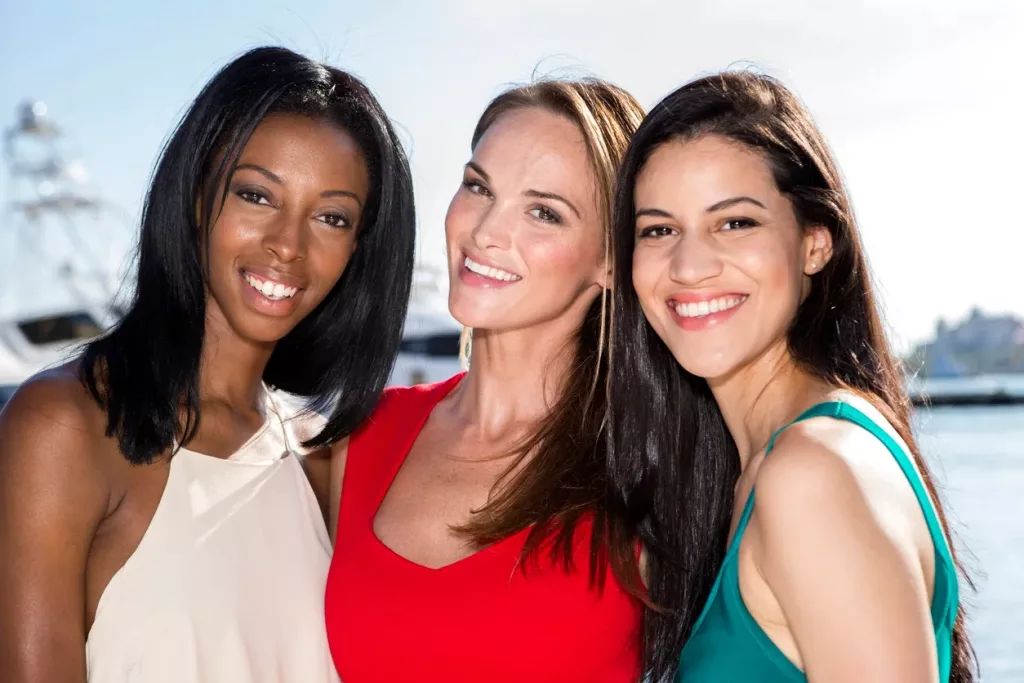25 April 2021|Latest Posts, Launching a business, Marketing, PR, Promotion

By Sascha Gianella. How to grow your community is a question asked by many entrepreneurs as they begin their business journey. Followers, likes, comments, reposts is common vocabulary today that is bandied about and it is easy to get caught up in the figures. So many entrepreneurs get caught spinning their wheels by focusing on a myriad of rapid growth strategies including social media in order to grow these figures and yet ultimately a stark majority suffer from lacklustre results and burnout.
I am an advocate for being a lot more intentional and strategic about how you grow your community by focusing on a small group of “champions”. Call me old-fashioned, and perhaps after 29 years in my industry I am. I started my career prior to the influence and impact of online marketing, before Instagram and before “social media” was coined a term.
In our fast-paced and insta-results driven world my route isn’t spoken about enough yet is one that will bring the most fruits to your table and for the sustainable long-term, if you are willing to slow down, and focus on this one key way to develop your business.
When I established We, the Muse, a visual artist support platform, I had the benefit of 3 decades experience working as an independent art curator and art advisor, internationally and on a diverse portfolio of projects. I have had the privilege and opportunity to meet and work with hundreds of artists and arts professionals, making connections in all sectors of the industry. My observations of artists that truly reached success at giddy levels, were never those who chased thousands of followers on social media or spent hours a day art directing posts.
The route to success that isn’t taken often enough
They were those who focused on their practices and those in their immediate circle. They were working on exhibitions and by the very nature of their work were having in-depth discussions regarding their work with curators, gallerists and museum directors, artist colleagues, collectors and enthusiasts, framers, and even their installation teams. It is natural that once that level of connection and understanding is established about your work, that people start to take an interest, not only in what you do, but how you can progress and go further. They, naturally, start making recommendations to possible opportunities, and introduce you to new contacts as they can see a connection of where your work might be on benefit to others. Those artists that I have observed over the years, often do not have an up-to-date website, they don’t have newsletters, landing pages or long mailing lists. What they do have, is a group of people, who hold them in high regard, who naturally “champion” their work. Why? Because they know them. The relationship has been nurtured in an authentic and altruistic way.
I have built my business through long-term connections, my own champions, with longevity and quality, not quantity in mind. With a sincere endeavour to inspire my industry and to impact the lives on artists in a positive way. If you focus on quantity, the followers, the likes, instead of the fundamental element to business – the quality of your relationships, chances are, your business will end up in the statistics. Followers and likes need to convert to paying clients that stick around for the long-term. It is so much easier and sustainable than a business model that attempts to reach all and sundry with using multiple strategies for a fast turnaround. We are savvier than that. Look after your people and they will look after you.
These are my top ways of building a small group of champions:
Look close to home
Take some time to look at those closest to you. Are you nurturing those relationships? These are the best people with which to start building strong links with as these people know you. Have you told them about what you are doing lately? Start talking. These are the people that will begin to know you better and share what you are doing with others that they know who may be interested in your work.
You don’t need influencers
You don’t need these people starting off and you may never need them. The people you need to focus on are those around you that can help you reach the stepping stones towards your bigger goals. Those that are the biggest and brightest should not be your first port of call.
Find links between those you know and those you want to get to
This is where the opportunity trail begins to appear once you reach out to those you know and talk about opportunities that you are interested in. Consider, quite seriously, if those around you even know what you do and where you want to go! Many people we have worked with keep very quiet on their goals. Those that you know will usually be more than happy to link you to those you are trying to get to. Allow the time for those introductions to be made.
Pick one social media platform and focus
It is thought that on social media that you need to do something consistently for 90 days before you start to see results. Find the platform that works for you and your service or offering. For artists, at the time of writing, this is very clearly Instagram. For journalists and writers, perhaps it is Twitter. For others it will be Facebook. Find out where your market hangs and and engages. Be intentional, you will need to post consistently on these platforms in order to make the AI work in your favour. You do not need to be on all platforms. In fact, being everywhere dilutes your efforts.
Take control of your community and your business
Don’t let social media dictate your list building exercise. Let it be one of the ways. You must direct those followers off those platforms to your mailing list. After all, you only own your mailing list, and not anything that sits on a social media platform. If you nurture your list, marketing work is shared by your “champions”, who in turn share your posts, spread your message via word of mouth, in an email to a contact, or on a call. Authentically.
The visual artist on We, the Muse sees that growing their community should be a qualitative experience not a quantitative one. And I see the relief when it is explained to them and put in practice. I believe that artists have to juggle the elements of their careers more than most – between their studio practice, professional practice, often other jobs to pay the bills, and life, for them time is a valued resource. Artists are not typically taught professional practice, audience and client development at art school, thus the noise of the internet and the reaction-based quantitative blueprint of social media is both confusing and exhausting.
I developed my career by focusing on developing and nurturing solid and genuine connections with people, most of whom I would consider my friends. I started We, the Muse as a response to the lack of professional skills such as how to price artwork, negotiate contract, approach a gallery and how to market artwork, but the real magic lies in the connections that are being forged in our international community. Artists are organising exhibitions with each other, and opportunities for studio exchanges and residencies are being discussed. The free flow of support, accountability and critical feedback is inspiring artists to work together, as a community, as champions of each other, and creating sustainable long term careers.
I encourage others at the start of their careers no matter what the industry is to reach out and become a part of a community. Building a strong community is how we can nourish each other and build a business that we love and that makes us happy.
About the Author
Curator and art adviser Sascha Gianella is also the Founder of We, The Muse, an international peer network for visual artists, where artist members are given practical support on all matters relevant to successfully developing a sustainable and rewarding artistic practice.
We, The Muse addresses what even the top art schools are only offering in a limited way, or not at all – entrepreneurial and organisational skills, communication and marketing skills, negotiation, and advocacy skills – all considered essential to the success of a 21st century artist. Members receive on-going insight and accountability within the community and from Mentors that are among the most influential and relevant artists and art professionals of our time including Matthew Burrows MBE and Sharon Louden.
Website: www.wethemuse.art We, The Muse is now accepting applications from new members.
Instagram: @wethemuseart
Sascha’s website: https://www.sgac.co/
- lisafoundersitehttps://thesuccessfulfounder.com/author/lisafoundersite/
- lisafoundersitehttps://thesuccessfulfounder.com/author/lisafoundersite/
- lisafoundersitehttps://thesuccessfulfounder.com/author/lisafoundersite/
- lisafoundersitehttps://thesuccessfulfounder.com/author/lisafoundersite/






